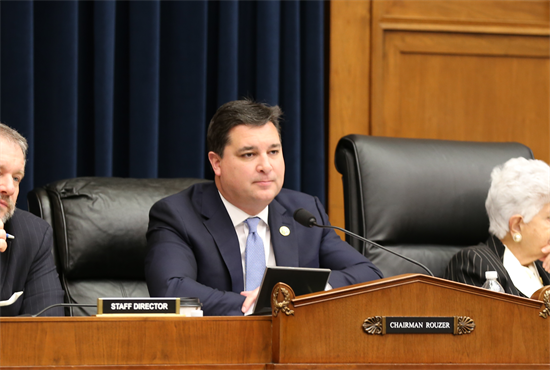Press Releases
President’s Flawed, Burdensome WOTUS Rule Survives Veto Override Despite House, Senate & State Majorities’ Opposition
Washington,
April 18, 2023
WASHINGTON, DC - Today, the House of Representatives fell short of overriding President Biden’s veto of H.J. Res. 27, a measure to overturn the Administration’s flawed, burdensome waters of the United States (WOTUS) rule. A two-thirds majority was needed to pass and override the President’s veto. H.J. Res. 27, which passed both the House and Senate with bipartisan support in March, was introduced by Water Resources and Environment Subcommittee Chairman David Rouzer (R-NC) and Transportation and Infrastructure Committee Chairman Sam Graves (R-MO). “The Biden Administration’s waters of the United States rule is one of the most damaging in history, with the potential to devastate production agriculture, derail infrastructure projects and harm our economy,” said Rouzer. “Congress spoke with a loud bipartisan voice and voted against this overreach, but without enough votes from the other side of the aisle to override the President’s veto. We will continue to work to push back against and defang this onerous rule at every available opportunity.” “Despite today’s vote, stopping this overreaching, burdensome WOTUS power grab has the support of bipartisan majorities in both Houses of Congress, and a majority of states have fought to stop its implementation,” said Graves. “This issue matters to everyday Americans all over the country, and I am disappointed to see the President choose radical environmental activists over America’s families, small businesses, farmers, builders, and property owners. As Americans continue suffering under the economic crises caused by the disastrous policies of this Administration, we will not stop working to overturn this incredibly intrusive regulatory expansion.” On April 12th, a decision from a federal judge in North Dakota halted implementation of the Biden Administration’s WOTUS rule in 24 states. This second recent injunction halts the rule’s implementation now in a total of 26 states. |


